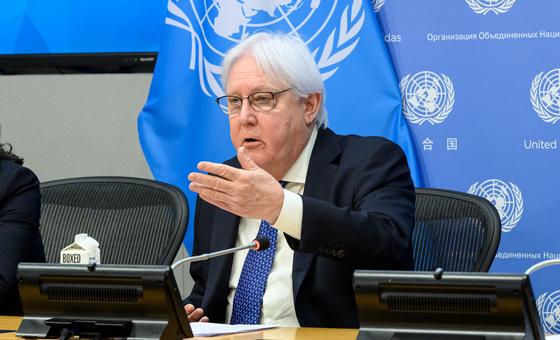“The scale and speed of what is unfolding is unprecedented in Sudan. We are extremely concerned by the immediate as well as long-term impact on all people in Sudan, and the broader region,” UN Spokesperson Stéphane Dujarric said in a statement.
The UN again urged the warring sides to protect civilians and civilian infrastructure, allow safe passage for civilians fleeing hostilities, respect humanitarian workers and assets, facilitate relief operations, and respect medical personnel, transport and facilities.
Appeal for renewed ceasefire
The announcement came just hours after the UN and international partners appealed for Generals Abdel Fattah al-Burhan and Mohamed Hamdan Daglo, known as “Hemedti”, to agree to extend a 72-hour ceasefire for another three days, amid reports of ongoing airstrikes in the capital, Khartoum.
The Trilateral Mechanism – which brings together the African Union, East African bloc IGAD and the UN – also called on the rivals to ensure their forces fully implement the truce.
“As the people of Sudan urgently need a humanitarian pause, the Trilateral Mechanism urges the parties to the conflict to respect the ceasefire, to protect civilians and to refrain from attacks on civilian populated areas, schools, and healthcare facilities,” they said in a statement.
“This ceasefire would also pave the way for talks between both sides towards the establishment of a permanent cessation of hostilities,” they added.
Death and displacement
Sudan has been undergoing a turbulent transition to civilian rule in the wake of the April 2019 overthrow of President Omar al-Bashir. A power-sharing government that brought together military and civilian leaders was also toppled in a coup in October 2021.
The Trilateral Mechanism has been facilitating talks since May 2022 which resulted in an agreement towards restoring civilian rule, signed that December.
However, hopes shattered two weeks ago when fighting erupted between the regular Sudanese army, led by General al-Burhan, and paramilitary forces under General Dagalo, known as the RSF.
Hundreds of people have been killed, and thousands have been fleeing, including to neighbouring Chad, where some 20,000 Sudanese have found refuge.
The fighting has also forced the UN to essentially halt all aid operations in a country, where nearly 16 million people, roughly one third of the population, already were in need.
Commitment to stay
The UN relocated and evacuated staff from Khartoum and other locations this week, who will continue to work remotely, whether from inside Sudan or in other countries.
The UN and partners are establishing a core team in the eastern city of Port Sudan, located on the Red Sea coast, which will be responsible for overseeing aid operations and negotiating humanitarian access with de facto authorities.
Humanitarians now based in the city, capital of Red Sea State, are determined to quickly return to Khartoum, as the UN continues to underscore commitment to Sudan.
Earlier on Sunday, Volker Perthes, head of the UN Mission supporting the transition in the country, UNITAMS, was briefed by the Wali (Governor) and other officials in Red Sea State on the humanitarian and security situation there.
“He assured them that the UN is not leaving Sudan and that he will work from Port Sudan until the security situation in Khartoum allows our return,” UNITAMS said in a tweet.

